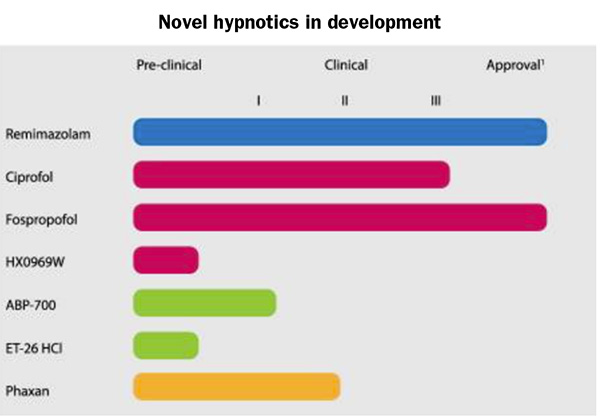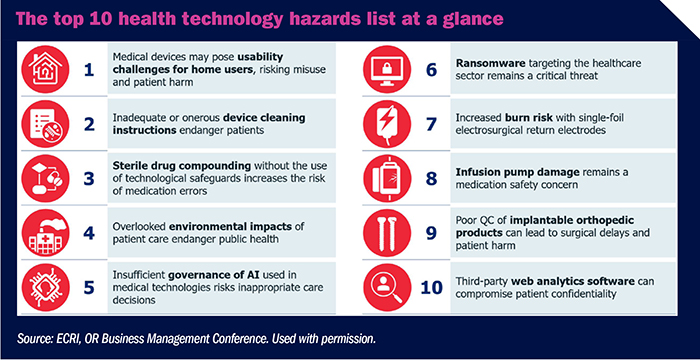 Anesthesia
Anesthesia
Study: Weight loss drugs could increase risk of surgical complications

Editor's Note Popular weight-loss drugs like Ozempic and Mounjaro could lead to complications in surgical procedures, according to study published March 6 in the journal JAMA Surgery. The study focused on drugs known as glucagon-like peptide-1 receptor agonists (GLP-1 RAs) which are used to treat diabetes and obesity. The drugs, which…
Procedural sedation analgesia considerations for ASC leaders

The promise of quicker recovery and fewer complications from sedation, anesthesia, and pain management have drawn clinicians and patients alike to procedures performed in ambulatory surgery centers (ASCs) and other outpatient settings. However, sedation, anesthesia, and analgesia add their own risks to those of the procedure itself. Understanding the latest…
Safe postop patient recovery: A day in the PACU leader role

Critical assessment and rapid response are essentials skills for perioperative staff members, and that goes double for perioperative leadership. Patient-centered leadership is a must. Like the OR, the postanesthesia care unit (PACU, formerly referred to as the “recovery room”) is a critical care area plagued by an influx of new…
Surgeons, anesthesiology rank high on “stressful job” list

Editor's Note Citing research from Dolman Law Group, a March 11 article in Becker’s ASC Review notes that surgeons have the second-most stressful job of any profession in the US. Anesthesiology was third most stressful, while paramedic was fourth. Steelworker topped the list. The Dolman Law Group research examined data…
Obstructive sleep apnea associated with risk of postoperative delirium

Editor's Note Patients with a history of obstructive sleep apnea (OSA) have a higher risk of delirium after high-complexity surgeries but not after those of moderate complexity, according to findings published in the March issue of Anesthesia and Analgesia. The study included 46,352 hospital patients older than 60 years who…
Study: Microglia help awaken the brain from anesthesia, protect neurons from aftereffects

Editor's Note A new study finds that the same cells that are involved in preventing damage to the central nervous system – called microglia – help to awaken the brain following anesthesia. The findings appeared January 4 in the journal Nature. Using electron-microscopy-based synaptic reconstruction, the researchers could see the…
Analgesic clinical trials failing to assess movement-evoked postoperative pain

Editor's Note Most surgical studies still do not report movement-evoked postoperative pain despite the recommendations of expert consensus groups, according to findings published November 27 in Anesthesiology. Researchers came to essentially the same conclusion upon re-evaluating the assessment of pain at rest and movement-evoked pain in 2011. In this updated…
Unveiling ECRI’s 2024 top 10 health technology hazards list

What is the purpose of the top 10 health technology hazards list, released every year by ECRI? “Our number one goal at ECRI is to reduce preventable harm,” stresses Jason Launders, MSC, former director of operations, device evaluation, at ECRI. “We know that every healthcare provider has a lot they…
Study: Postop emergency appendectomy complications more likely for Black children

Editor's Note In a recent study, black children undergoing emergency appendectomy had a four times greater risk of postoperative complications than white children, independent of socioeconomic status or type of appendicitis. Anaesthesia, the journal of the Association of Anaesthetists, published the findings February 22. Researchers note that this is the…
Study: Intrathecal morphine reduces post-op opioid need in open prostate, kidney surgeries

Editor's Note A recent study suggests a single dose of intrathecal morphine provides long-lasting analgesia and reduces the need for postoperative systemic administration of opioids after painful open urological procedures. The Journal of PeriAnesthesia Nursing published the data January 31. Intrathecal opioid administration is an attractive technique in these surgeries…

 Free Daily News
Free Daily News